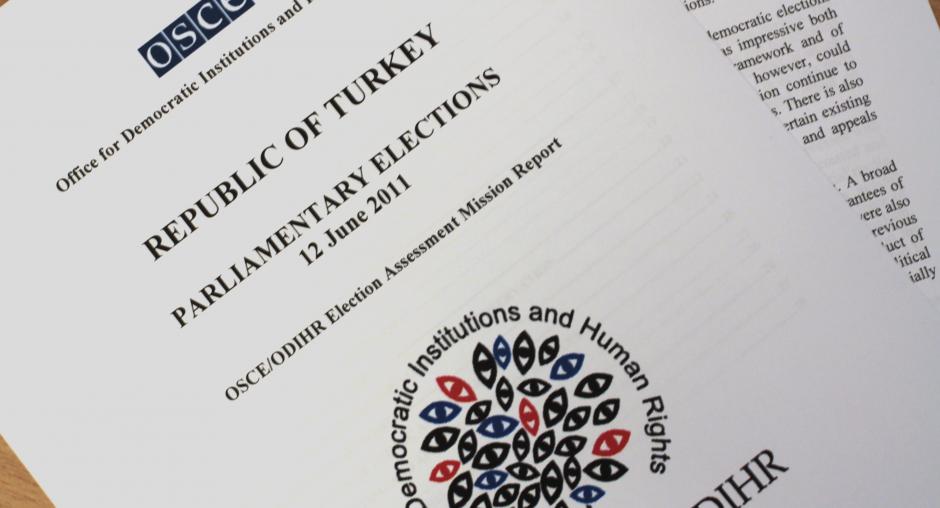Turkey’s June elections demonstrated commitment to democracy, but freedom of expression and electoral rights remain limited, concludes ODIHR’s final report

The June 12 parliamentary elections in Turkey demonstrated a broad commitment to holding democratic elections but the Constitution and implementing legislation continue to unduly limit freedom of expression, freedom of association and electoral rights, the final report released by ODIHR on 31 October concludes.
The existence of solid institutions and experience in holding democratic elections is clear, the report says. The report highlights, however, that there is a need to ensure the equality of vote weight among constituencies, to lift certain existing restrictions on suffrage rights, as well as to enhance transparency in the electoral complaints and appeals process.
The report notes that the legal framework provides a comprehensive basis for the conduct of elections. Significant changes to election-related laws, with some amendments relating to previous OSCE/ODIHR recommendations, improved the overall framework for the conduct of elections. However, the legislation lacks clarity and uniformity, which creates the potential for its inconsistent application and arbitrary interpretation. Furthermore, it still does not provide for observation of the electoral process by international and domestic civil society organizations.
According to the report, the campaign was lively, and the level of electoral participation was impressive both during the campaign and on election day. Concerns were, however, expressed with regard to the legislative limitations on freedom of expression, a high number of arrested and convicted journalists, and the alleged control exercised by the government over some influential media.
The report adds that several parties voluntarily introduced measures to encourage involvement of women as candidates, which resulted in the representation of women in the parliament increasing from 9.1 per cent in 2007 to 14 per cent in the new legislature.
